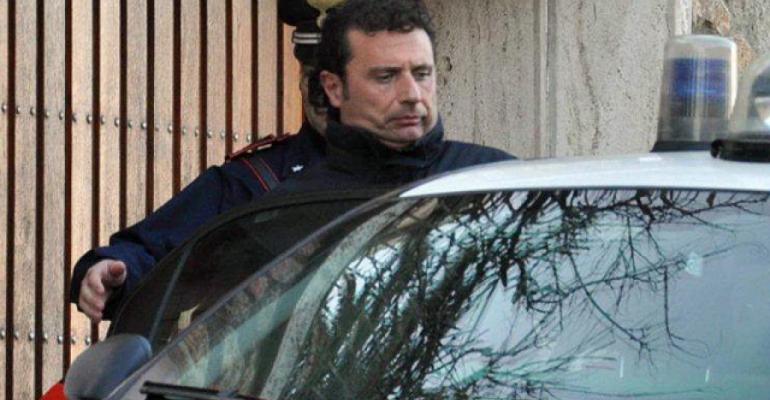Instead, Admiral Giuseppe Cavo Dragone, who led the team that examined the ship’s black box, claimed not only that there was time and water enough to avoid the initial collision with the rocks but that the vessel’s route thereafter was completely fortuitous.
As Italian wire service Ansa related his testimony, Schettino was incapable of setting Costa Concordia on its trajectory because the engine room was too badly damaged and the rudder blocked. Rather, the vessels’s course was determined by nature in the shape of wind and currents.
Indeed, he said the actions taken by Schettino after the vessel first hit the rocks suggest that, rather than bringing it into shore and beaching it, he was intent on guiding it away from the island and into far deeper and more dangerous waters.
Schettino’s lawyer, Bruno Leporatti, strongly contested the experts’ portrayal of his actions that night, arguing that his client 'had repeatedly said he wanted to bring the vessel in to shore and that is exactly where it ended up, allowing 4,200 people to be evacuated, largely with the Concordia’s own means.'
Another lawyer for the accused master told press outside the Teatro Moderno in Grosseto where the hearing is taking place that 'Captain Schettino’s manouveuring was certainly not a question of mere chance. He used the rudders for as long as he could, taking the wind and the currents into account. The rudders blocked only after his last order, "straight ahead".'
As for the initial collision, the experts found that as little as six minutes after impact, Schettino knew that he had hit a rock, that he had no engine power, that he could not control the rudder, that he was taking in water fast and that the electrical plant was flooded.
Schettino, who is charged with shipwreck, manslaughter and abandoning ship, is one of nine defendants in the case, including two senior Costa Crociere managers: Manfred Ursprunger, executive vice president-fleet operations at the time of the incident, and operations manager Roberto Ferrarini.
Copyright © 2024. All rights reserved. Seatrade, a trading name of Informa Markets (UK) Limited.
Add Seatrade Cruise News to your Google News feed.  |

